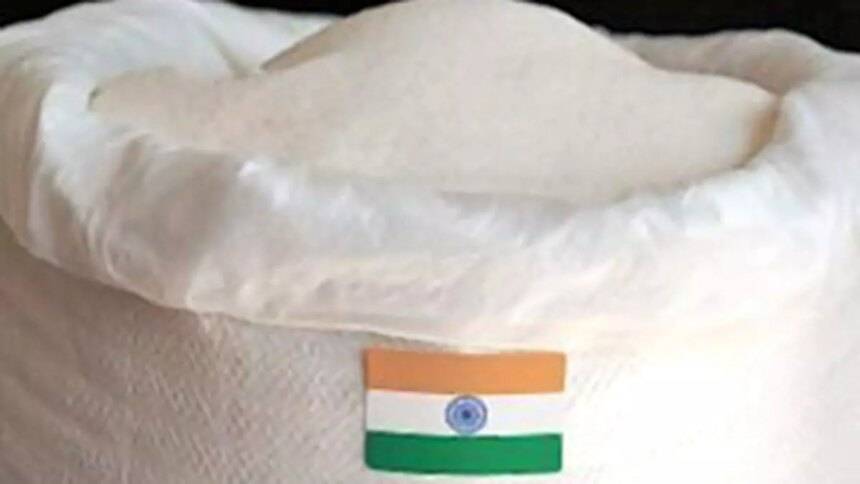Main Points In Hindi (मुख्य बातें – हिंदी में)
-
जांच का आरंभ: भारत के विदेश व्यापार महानिदेशालय (डीजीएफटी) ने द्विपक्षीय संधि के तहत मालदीव को निर्यात होने वाली चीनी के श्रीलंका में डायवर्जन की जांच शुरू की है, जिसके अंतर्गत निर्यातकों द्वारा 64,494.33 टन चीनी के एक हिस्से के दुरुपयोग का आरोप है।
-
निर्यात में रुकावट: जांच आरंभ होने के बाद मालदीव को चीनी का निर्यात लगभग रुक गया है, और श्रीलंका के सीमा शुल्क अधिकारियों ने कोलंबो में भेजे गए भारतीय चीनी के लगभग 70 कंटेनरों को हिरासत में लिया है।
-
कंटेनरों की हिरासत: मालदीव को निर्यात होने वाली चीनी के कम से कम सात पार्सल को न्हावा शेवा बंदरगाह पर हिरासत में लिया गया, जिससे स्पष्ट होता है कि ये चीनी किसी अन्य देश की ओर भेजी जा रही थी।
-
चालान में विचलन: कुछ चालानों में देखा गया है कि कोलंबो स्थित फर्म के माध्यम से चीनी के लिए दर्शाए गए मूल्य और गंतव्य में गड़बड़ी की गई है, जो कि मालदीव के बजाय श्रीलंका में व्यापारियों को संदर्भित कर रही है।
- द्विपक्षीय समझौता: भारत ने 2023-24 सीज़न में चीनी के निर्यात पर रोक लगा दी थी, लेकिन मालदीव जैसे कुछ देशों को सीमित मात्रा में निर्यात की अनुमति दी गई थी, जिसे अब संशय में डाला गया है।
Main Points In English(मुख्य बातें – अंग्रेज़ी में)
Here are the main points regarding the investigation into Indian sugar exports being diverted from the Maldives to Sri Lanka:
-
Investigation Initiation: The Directorate General of Foreign Trade (DGFT) of India has launched an investigation into allegations that Indian sugar exported to the Maldives under a bilateral agreement is being redirected to Sri Lanka.
-
Export Misuse Allegations: Reports indicate that exporters allegedly misused a portion of the 64,494.33 tons of sugar allocated for export to the Maldives, raising concerns about the integrity of these transactions.
-
Seized Shipments: At least seven parcels of sugar destined for the Maldives have been detained at the Nhava Sheva port under suspicion of being diverted to another destination, specifically Sri Lanka, where customs officials have also seized approximately 70 containers of Indian sugar.
-
Regulatory Framework: Following the investigation, the DGFT restricted the export of sugar to the Maldives, allowing exports only through specific designated ports.
- Financial Transactions and Fraudulent Practices: Invoices related to these sugar shipments suggest a pattern of misrepresentation, where shipments originally intended for the Maldives appear to be invoiced to Colombo-based firms, raising suspicions of fraudulent practices in the export process.


Complete News In Hindi(पूरी खबर – हिंदी में)
व्यापार सूत्रों ने कहा कि विदेश व्यापार महानिदेशालय (डीजीएफटी) ने द्विपक्षीय संधि के तहत भारत से मालदीव को चीनी निर्यात को श्रीलंका की ओर मोड़े जाने की जांच शुरू की है।
25 अक्टूबर को, व्यवसाय लाइन बताया गया कि कुछ निर्यातकों ने दोनों देशों के बीच द्विपक्षीय समझौते के तहत मालदीव को निर्यात के लिए केंद्र द्वारा आवंटित 64,494.33 टन चीनी के एक हिस्से का कथित तौर पर दुरुपयोग किया। इसके बाद, डीजीएफटी ने एक जांच शुरू की और व्यापार सूत्रों ने कहा कि मालदीव को चीनी निर्यात रुक गया है।
सूत्रों ने कहा कि मालदीव को निर्यात की जाने वाली चीनी के कम से कम सात पार्सल को न्हावा शेवा बंदरगाह पर इस संदेह में हिरासत में लिया गया है कि इसे किसी अन्य मूल में ले जाया जा रहा था।
द्विपक्षीय समझौता
दूसरी ओर, श्रीलंकाई सीमा शुल्क अधिकारियों ने अलर्ट के बाद कोलंबो भेजे गए भारतीय चीनी के लगभग 70 कंटेनरों को हिरासत में ले लिया है। व्यवसाय लाइन प्रतिवेदन।
5 अप्रैल, 2024 को, डीजीएफटी ने मालदीव के साथ एक द्विपक्षीय समझौते के तहत एक अधिसूचना जारी की, जिसमें चावल, गेहूं का आटा, दाल, चीनी, अंडे, आलू और प्याज के अलावा पत्थर और नदी की रेत की अनुमति दी गई।
हालांकि भारत ने उत्पादन में गिरावट के कारण 2023-24 सीज़न (सितंबर-अक्टूबर) में चीनी निर्यात की अनुमति नहीं दी, लेकिन मालदीव जैसे कुछ देशों को सीमित मात्रा में चीनी निर्यात की अनुमति दी।
बाद में 15 अप्रैल, 2024 को डीजीएफटी ने कहा कि द्विपक्षीय संधि के तहत वस्तुओं के निर्यात को केवल अंतर्देशीय कंटेनर डिपो, तुगलकाबाद के अलावा मुंद्रा, तूतीकोरिन और न्हावा शेवा समुद्री बंदरगाहों के माध्यम से अनुमति दी जाएगी।
ठहराव पर
डायवर्जन की जांच शुरू होने के बाद मालदीव को चीनी का निर्यात लगभग रुक गया है। व्यापार सूत्रों ने कहा कि श्रीलंका के अधिकारियों ने कोलंबो में मंजूरी रोक दी है। उन्होंने लंका स्थित खरीदारों के खिलाफ अलग से जांच शुरू कर दी है।
मालदीव को निर्यात के लिए अनुमति प्राप्त देश से चीनी के 80 से अधिक कंटेनर लोड अक्टूबर के मध्य तक कोलंबो, श्रीलंका में उतरे।
30 सितंबर, 2024 के बिल ऑफ लैडिंग की एक प्रति उपलब्ध कराई गई व्यवसाय लाइन, दिखाया गया कि 270 टन का शिपमेंट न्हावे शेवा बंदरगाह से किया गया था, जिसका गंतव्य गंतव्य कोलंबो था।
बिल में दावा किया गया कि माल माले, मालदीव के पारगमन में कंसाइनी के जोखिम पर था। बिल में एक अजीब नोट था जिसमें खरीदारों से खाली कंटेनरों को “कंसाइनी खाते पर कोलंबो में वाहक द्वारा नामित डिपो” को वापस करने के लिए कहा गया था।
माले बंदरगाह कोई छोटा बंदरगाह नहीं है जिसके लिए कंटेनरों को कोलंबो लौटाने की आवश्यकता होती है। सूत्रों ने बताया कि चीनी की खेप कथित तौर पर लंकाई व्यापारियों को उपलब्ध कराई गई थी।
चालान स्विच-ओवर
शिपमेंट के लिए बनाए गए इनवॉइस से पता चला कि कोलंबो स्थित फर्म द्वारा यूएई-आधारित शिपर को 580 डॉलर प्रति टन की लागत और माल ढुलाई भुगतान कुल 1,56,600 डॉलर का भुगतान किया जाना था। परेषिती को “सलाह दी जानी थी”।
23 सितंबर, 2024 के एक अन्य चालान में दुबई स्थित एक फर्म को 585 डॉलर प्रति टन के हिसाब से 270 टन और कुल मिलाकर 1,57,950 डॉलर एक अज्ञात कंसाइनी को बेचते हुए दिखाया गया है। हालाँकि, वह चाहता था कि कोलंबो स्थित कंपनी को सूचित किया जाए।
व्यापारियों ने आरोप लगाया कि चालान में गंतव्य को कोलंबो और खरीदार को श्रीलंका के व्यापारी के रूप में दिखाया गया है। सूत्रों ने कहा कि ऐसे शिपमेंट के लिए प्रथा उस देश के लिए निर्यात और सीमा शुल्क निकासी के लिए दस्तावेज तैयार करना है, जहां शिपमेंट की अनुमति है।
एक बार जब माल सीमा शुल्क के दायरे से बाहर हो जाता है, तो वे लदान के बिल को उस गंतव्य पर स्विच करवा लेते हैं जहां इसे ले जाया जाना है और चालान को प्रतिस्थापित कर देते हैं। कुछ खेप न्हावा शेवा बंदरगाह से मलेशिया के पोर्ट क्लैंग तक भी गई हैं।
Complete News In English(पूरी खबर – अंग्रेज़ी में)
The Directorate General of Foreign Trade (DGFT) has started an investigation into allegations that sugar exported from India to the Maldives under a bilateral agreement is being diverted to Sri Lanka. Reports indicate that some exporters may have misused a portion of the 64,494.33 tons of sugar allocated for the Maldives.
On October 25, it was reported that due to these suspicions, shipments of sugar to the Maldives have come to a halt. At least seven parcels of sugar destined for the Maldives were held at the Nhava Sheva port, suspected of being rerouted.
Sri Lankan customs officials have detained approximately 70 containers of Indian sugar sent to Colombo after receiving an alert. A notification issued by DGFT on April 5, 2024, confirmed that under the bilateral agreement, various goods including sugar could be exported. However, due to a decrease in production, India did not allow sugar exports in the 2023-24 season, except for limited quantities to specific countries like the Maldives.


Following the investigation into the diversion, sugar exports to the Maldives have nearly stopped, and Sri Lankan authorities are separately probing the buyers in Sri Lanka. More than 80 containers of sugar meant for the Maldives were landed in Colombo by mid-October. One shipping bill dated September 30, 2024, indicated a shipment of 270 tons from Nhava Sheva to Colombo.
The bill stated that the goods were at the risk of the consignee in transit to Male, Maldives, and included a peculiar note instructing buyers to return empty containers to a specified depot in Colombo. The lots were apparently made available to Sri Lankan traders.
Invoices for the shipments revealed that a UAE-based shipper was charged $580 per ton and was to pay a total freight charge of $156,600. Additionally, another invoice from September 23, 2024, showed a sale of 270 tons at $585 per ton to an unknown consignee, with instructions to inform the Colombo-based company.
Traders are concerned that the invoices incorrectly show Colombo as the destination with Sri Lankan traders as buyers, which is standard practice to prepare export and customs clearance documents for shipping to countries where it is allowed. Once the goods clear customs, the bills are often switched to the actual destination. Some shipments even reached Malaysia’s Port Klang.
Source link








